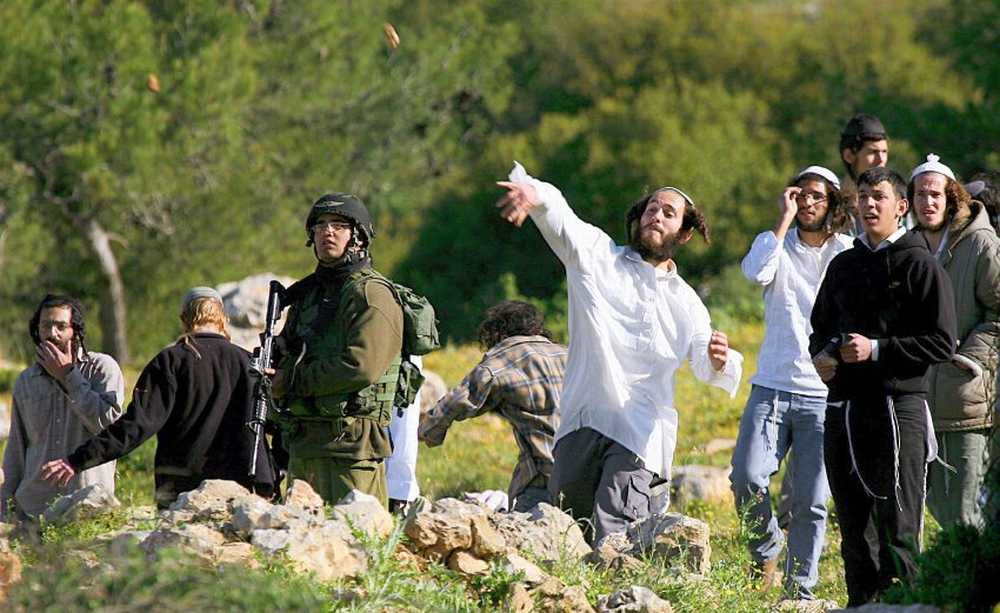HAIFA, Saturday, October 28, 2023 (WAFA) - Israeli media outlets reported that Justice Minister Yariv Levin and Interior Minister Moshe Arbel had held a meeting with experts to discuss revoking citizenship and residency from people who are found to support terrorism, incite to terrorism, or identify with terrorist acts. The ministers have also reportedly agreed to immediately advance legislation to this effect.
This announcement joins a series of measures and policies that are already being implemented, aimed at deterring Palestinians from expressing criticism of Israel’s offensive on Gaza, and further delegitimizing the national identity of Palestinian citizens of Israel.
Since 7 October, Israel has implemented a severe crackdown on freedom of speech for Palestinian citizens of Israel. It has so far included over 110 arrests for alleged speech-related offenses, punitive measures taken against Palestinian students and employees at their universities and workplaces, and even the introduction of a bill that criminalizes individuals’ passive use of social media platforms, referred to as “consumption of terrorist materials”.
Speech-related offenses, as previously demonstrated by Adalah, are selectively prosecuted against Palestinians. Since 7 October, 126 criminal investigations have been initiated on charges of identification and incitement to terrorism, resulting in 18 indictments filed, 17 of which are against Palestinians, for expressions, primarily made on social media platforms. In comparison, 16 indictments were filed on charges of speech-related offenses under the Counter-Terror Law during the entire year of 2021.
Currently, under Israeli law, there are two tracks for revoking residency and citizenship status.
The first track is based on alleged "breach of loyalty", a concept that is defined in an overly broad manner, to include any "act of terror," assistance or solicitation thereof, or "taking an active part" in a "terrorist organization," as stipulated in the Counter-Terrorism Law (2016), which uses ambiguous language that allows for a wide range of interpretations.
At the request of the Interior Minister, Israeli law authorizes a court of administrative affairs to revoke the Israeli citizenship of individuals found to have "committed an act that constitutes a breach of loyalty to the State of Israel". It also allows for the revocation of residency status, a provision directed primarily at Palestinian East Jerusalemites with permanent residency, granting the Interior Minister almost complete discretion in this matter.
The second track allows for the revocation of the citizenship or permanent residency status of an individual who has been convicted of an offense defined as an "act of terrorism" under the Counter-Terrorism Law, or of other specified offenses stipulated in Israel's Penal Law; and who has received a prison sentence for such offense; and who has received monetary benefits from the Palestinian Authority in connection with a "breach of loyalty to the State of Israel", according to the Interior Minister.
In the case of citizenship revocation, the Interior Minister must obtain court approval, while the minister has near-complete discretion in the case of residency revocation. This second track was introduced in February 2023 and provides that the individual whose citizenship or residency has been revoked will be expelled to the territory of the Palestinian Authority or to the Gaza Strip.
In response to the declaration of the planned legislation, Adalah commented: “Since Israel launched its retaliatory attack on Gaza, the Israeli authorities have carried out an unprecedented number of arrests based primarily on social media posts, including over 100 Palestinian citizens of Israel accused of incitement and support for terror. Many of these accusations leveled against the arrestees fall far short of the threshold for being considered criminal offenses; some are based on nothing more than expressions of dissent against Israel's military actions in Gaza or expressions of solidarity with the Palestinian victims. It is now becoming evident that these arrests are part of a large-scale campaign to deter any form of criticism of Israeli military actions and to quash expressions of Palestinian collective identity. The ministers’ reported statement indicates a clear intention to cynically exploit the current state of national emergency to send a message to Palestinian citizens that their status and rights are conditional upon their rejection of their own national identity, and that they face the threat of expulsion from their ancestral homeland.”
M.K.










